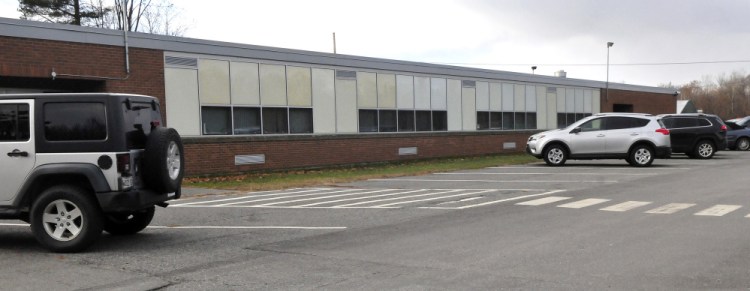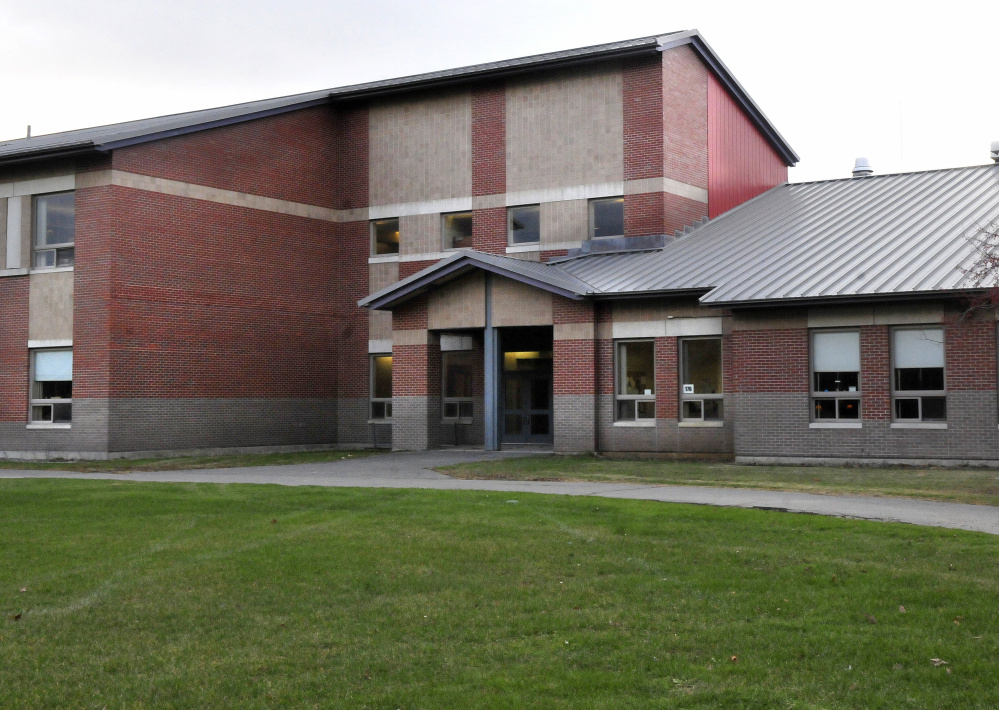WINSLOW — Nearly a month after residents defeated a $10.33 million bond that would have renovated and consolidated schools, the Town Council and school board met to begin hashing out their differences and try to reach a new agreement.
Town Manager Michael Heavener earlier in the day said there was no agenda for the Monday night meeting, but that the goal was to discuss a host of issues, including the school renovation project as well as the upcoming budget. While the two entities don’t necessary meet regularly, Heavener said it was prudent for the council and board to get together to have this conversation.
During the meeting, members from both council and school board made it clear they had to do something to replace the junior high school. Councilor Ken Fletcher said the only two options he saw were to move to a kindergarten through eighth grade model, or shift grades seven and eight to the high school. He said there was not a plausible case to spend money to revamp the junior high school, since it was far too large for the town’s needs. He said he has not heard from many people opposed to going to a two school system.
After roughly an hour and a half of discussion, the group agreed that the Town Council should reconvene at its December meeting to come up with a rough figure the town would be willing to spend to renovate and consolidate the schools. That figure would then be recommended to a joint building committee.
“You’ve got to have a pin in the ground to start with,” Fletcher said.
Members from both sides agreed that the $10.33 million figure was too high for residents to agree on. While they didn’t come up with a figure Monday night, they all seemed to agree that something smaller would likely fare better with town residents.
Councilor Ray Caron said the delay in passing the bond gives both groups a chance to see a clearer picture of town finances going forward, and time to come up with another figure.
“At least work with the figure we give,” Caron said to those around the table. “If you can’t live with it, if your education will really be compromised, then come back to us. But work with us.”
Voters rejected the controversial measure on Nov. 7, with 1,258 people voting against the proposal and 1,056 people voting for it. The proposal would have called for funding the construction of a performing arts center and workspace for students involved in music and theater, which some opponents saw as unnecessary. It also would have expanded the high school to allow the district to consolidate the schools, which are part of Alternative Organizational Structure 92, and move forward with the plan to close Winslow Junior High School, moving seventh- and eighth-graders to the high school and sixth-graders to the elementary school.
The school board has voted to close the junior high school by 2019 and send sixth-graders to the elementary school and seventh- and eighth-graders to the high school, but that deadline may need to be extended to accommodate another bond approval process. The consolidation process began in 2012 when a study committee began looking for feasible solutions for the hazards presented by the junior high school, which was built in 1928.
Councilors were divided on the proposal that went before voters, splitting 4-3 in an August vote. Councilors Ken Fletcher, Ben Twitchell and Jerry Quirion voted against the proposal, citing concerns over taking on too much debt that could result in a tax rate increase. Councilors Raymond Caron, Steve Russell, Jeff West and Patricia West voted in favor of the project, saying it was the best option for the students.
Russell, Council chairman, said he thought part of the reason the bond failed earlier this month was because the council wasn’t unified. A 7-0 vote in favor of the proposal would be a lot stronger than 4-3, he said.
“The most important thing is that we come to a consensus,” he said.
The proposed project, designed by Portland architect Stephen Blatt, would have added 20,000 square feet to the end of the high school for classrooms and support space specifically for the younger grades. It also called for additional parking spaces and renovated space at the elementary school.
The most controversial piece of the project was the proposed performing arts center, which would have cost just under $3 million and seat 600 people. Blatt also designed renovated space for students in band, chorus and stage design to work near the new center. School Board member Lee Trahan said he thought the phrase “performing arts center” may have lead voters to believe the room was something more glamorous than what it actually was, which is in essence an auditorium.
The proposal was contentious between members of the Town Council and school board during the discussion process. Board members expressed concern earlier this year after the Town Council recommended forming an ad hoc committee to study school finance and performance, saying the committee represented a lack of trust from the council.
Colin Ellis — 861-9253
cellis@centralmaine.com
Twitter: @colinoellis
Send questions/comments to the editors.




